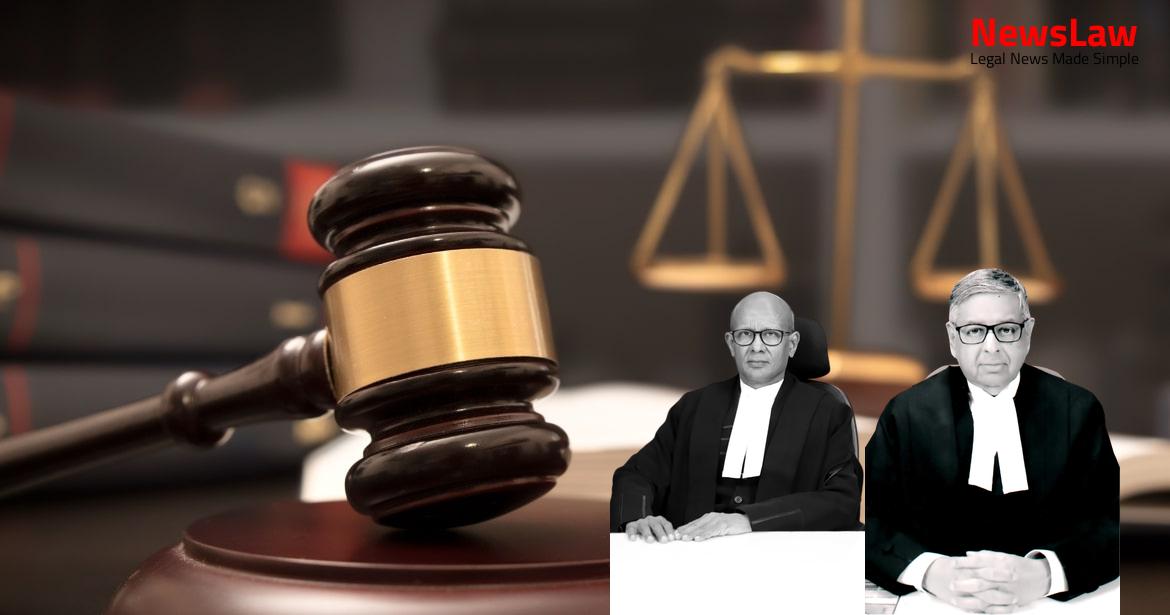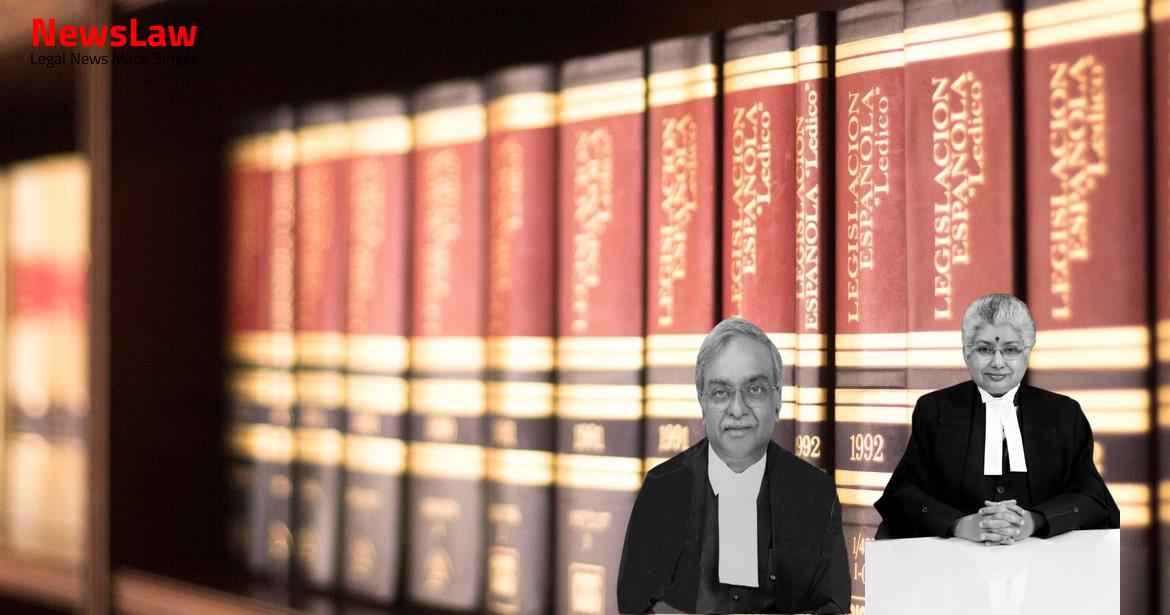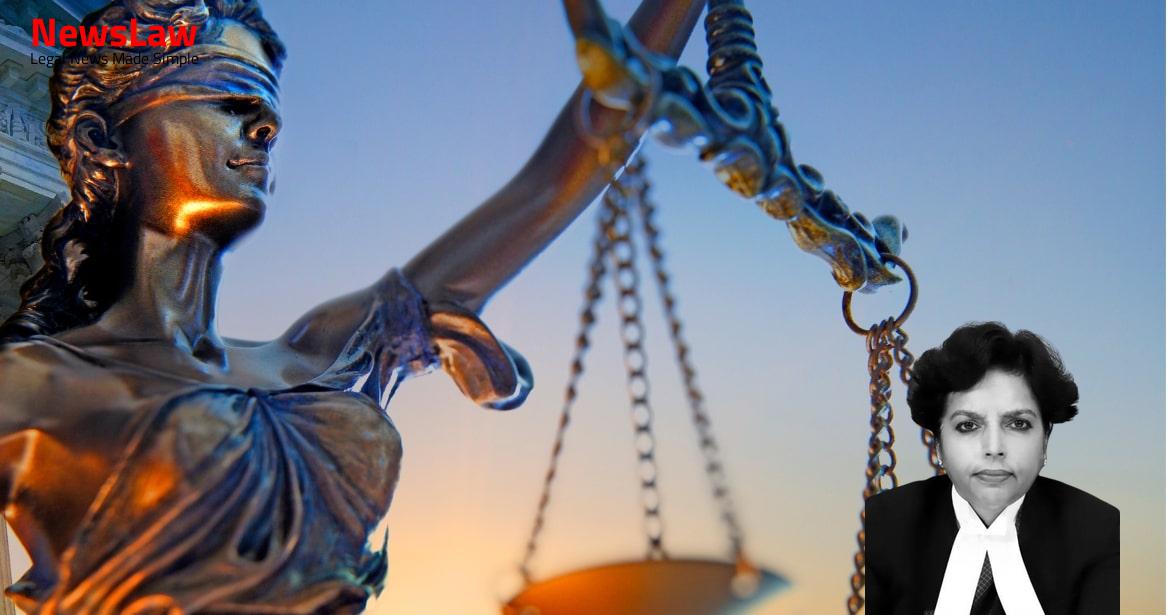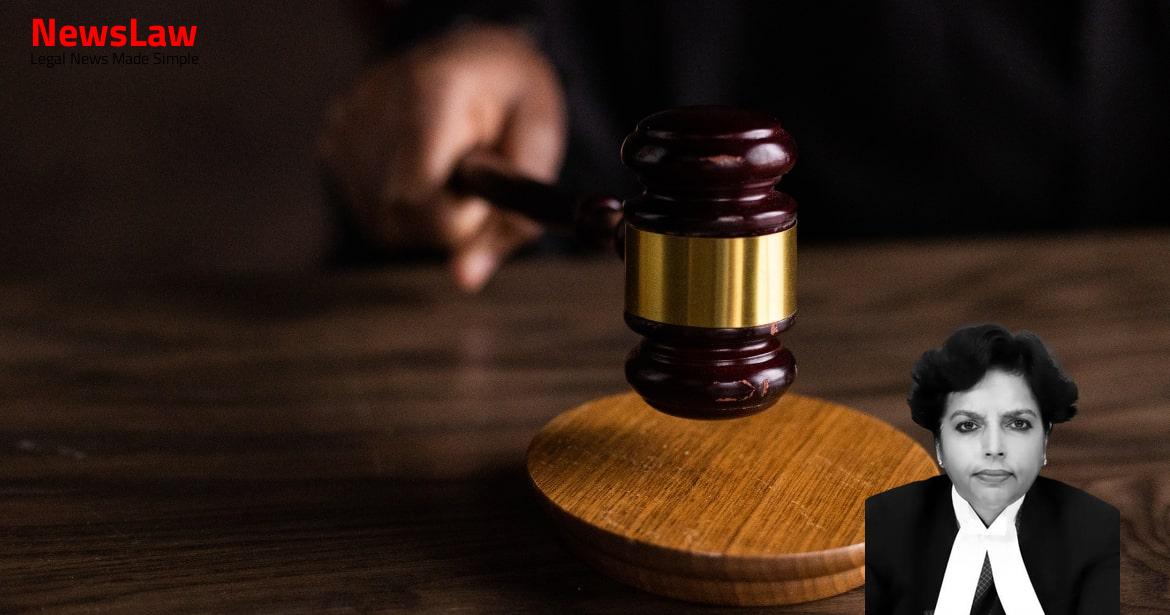In the case of Karikho Kri vs Nuney Tayang, the High Court ruled in favor of Karikho Kri, upholding his election as the returned candidate from Tezu (ST) Assembly Constituency of the State of Arunachal Pradesh. This decision comes as a victory for Karikho Kri in the face of the election petition filed by Nuney Tayang. Let’s delve into the legal intricacies of this case and the implications of the High Court’s judgment.
Facts
- Dr. Mohesh Chai did not contest the case before the High Court, despite receiving notice.
- The election results showed Karikho Kri as the winner with 7538 votes, followed by Dr. Mohesh Chai with 7383 votes and Nuney Tayang with 1088 votes.
- Karikho Kri’s non-disclosure of taxes in certain parts of his Affidavit in Form No.26 was noted by the High Court.
- Non-disclosure of three vehicles registered in the names of Karikho Kri’s wife and second son was considered a corrupt practice by the High Court.
- Karikho Kri was represented by counsel and filed replies in both appeals.
- The High Court ruled against Karikho Kri on issues related to the non-disclosure of vehicles registered in his family members’ names.
- Nuney Tayang filed an election petition challenging the acceptance of Karikho Kri’s nomination due to non-disclosure of material assets and liabilities in the Affidavit.
- The High Court framed nine issues for determination, including non-disclosure of vehicle ownership and failure to submit a ‘No Dues Certificate’.
- High Court concluded that the person in whose name a motor vehicle is registered should be considered the owner.
- The judgment declared Karikho Kri’s election void under certain sections of the Representation of the People Act, 1951, but did not declare Nuney Tayang duly elected due to lack of evidence against the second-highest vote recipient.
- Karikho Kri was permitted to enjoy privileges as an MLA but was restrained from voting on the floor of the House or committees.
- The High Court found non-disclosures by Karikho Kri to be substantial, affecting the fairness of the election process.
- Nuney Tayang was held disentitled to relief as he failed to prove allegations against the second-highest vote recipient.
- The High Court emphasized the importance of complete and accurate disclosures in election affidavits.
- Ownership of vehicles and non-submission of ‘No Dues Certificate’ were key factors in the judgment against Karikho Kri.
Also Read: Balaji Chimnaji More vs Babaji Hari Shelar and Ganapati Dhondiba Tapkir
Arguments
- In the case of Kamta Prasad Upadhyaya vs Sarjoo Prasad Tiwari and others, a 3-Judge Bench of the Court affirmed the legal position established by Vashist Narain.
- The legal position as settled by Vashist Narain was cited and relied upon in this case as well.
- The affirmation of the legal position indicates its continued relevance and validity in subsequent cases.
Also Read: Judicial Oversight in Granting Pre-Arrest Bail to Police Officer
Analysis
- The Returning Officer cannot reject a nomination unless the defect is of a substantial nature.
- Non-disclosure of high-value assets or information relevant to the candidate may constitute ‘undue influence’.
- A candidate must disclose assets of significant value or reflecting their lifestyle.
- High Court’s finding of improper acceptance of nomination due to non-disclosure of assets was contested.
- Non-disclosure of certain assets may not always be considered a substantial defect.
- Detailed enquiry needed to determine if a nomination was improperly accepted.
- Various certificates submitted by the candidate post-nomination raised questions about the acceptance process.
- Non-compliance of nomination laws and rules need to be substantiated with evidence to invalidate an election.
- High Court’s linkage of non-disclosures to corrupt practices under Section 123(2) was criticized for lack of evidence.
- Failure to plead and prove non-compliance with laws as per Section 100(1)(d)(iv) could not invalidate the election.
- Appropriate stages and requirements of proving non-compliance to challenge election results were discussed.
- Need for a comprehensive approach and detailed evidence to connect non-compliance to election results being materially affected.
- Section 123(2) of the Act of 1951 defines corrupt practices and outlines the criteria for determining corrupt practices under the Act.
- The High Court must form an opinion that a corrupt practice was committed by the returned candidate or their election agent for the election to be declared void.
- Karikho Kri was found to have committed a corrupt practice under Sections 100(1)(d)(i) and (iv) of the Act of 1951 for failing to disclose vehicles registered in the names of his dependent family members.
- The High Court also held Karikho Kri accountable under Section 100(1)(b) of the Act of 1951, deeming his non-disclosure of the vehicles as a corrupt practice.
- Non-disclosure of assets and sources of income of candidates and their associates constitutes a corrupt practice falling under ‘undue influence’ as per Section 123(2) of the Act of 1951.
- Filing an affidavit with blank particulars renders the affidavit nugatory.
- False declaration regarding the assets of a candidate, spouse, or dependents constitutes a corrupt practice, impacting the election.
- Non-disclosure of the three vehicles in question could not be held against Karikho Kri as the vehicles were transferred before his nomination.
- Failure to get registered the new owner of a vehicle does not invalidate the sale transaction.
- High Court overlooked key factors in determining the ownership of the vehicles in question.
- Definition of ‘owner’ in the Act of 1988 plays a crucial role in determining liability in case of accidents involving vehicles.
- Non-disclosure of assets like three vehicles did not amount to ‘undue influence’ in the election process.
- High Court’s decision on non-disclosure of taxes due by Karikho Kri was considered insignificant.
- In cases of improper acceptance of nominations, it must be proved that the result of the election was materially affected.
- Burden of proof lies on the party seeking to set aside the election in case of non-compliance or defects in nominations.
- The right of voters to information is crucial for democratic participation and informed voting decisions.
- The High Court was wrong in concluding that there were sufficient grounds under Sections 100(1)(b), 100(1)(d)(i), and 100(1)(d)(iv) of the Act of 1951 to invalidate the election of Karikho Kri.
- The non-disclosure of three vehicles still registered in the names of his wife and son during the nomination filing did not constitute a ‘corrupt practice’ under Section 123(2) of the Act of 1951.
- Mr. Arunabh Chowdhury, senior counsel, decided not to pursue this ground further.
- There is no need to address Civil Appeal No 4716 of 2023 by Nuney Tayang or the issues raised by Dr. Mohesh Chai.
Also Read: Conflict in Internal Organization of Police Force: Legal Analysis
Decision
- Civil Appeal No 4615 of 2023 filed by Karikho Kri is allowed.
- Judgment and Order dated 17.07.2023 passed by the Itanagar Bench of the High Court of Assam, Nagaland, Mizoram and Arunachal Pradesh in Election Petition No.01(AP) of 2019 is set aside.
- The election of Karikho Kri as the returned candidate from Tezu (ST) Assembly Constituency of the State of Arunachal Pradesh is upheld.
- Parties shall bear their own costs.
Case Title: KARIKHO KRI Vs. NUNEY TAYANG (2024 INSC 289)
Case Number: C.A. No.-004615 / 2023



